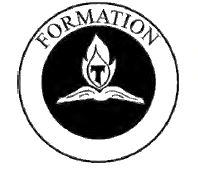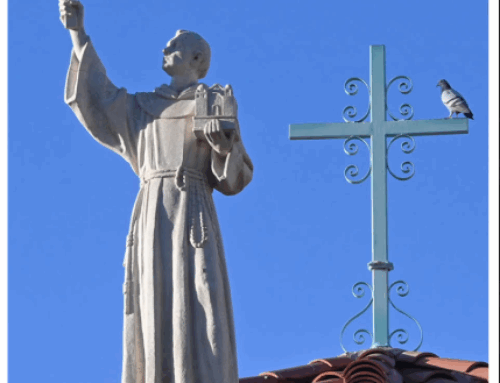(This article originally appeared in the Fall 2020 Issue of TAU-USA #101)
 Formation Commission
Formation Commission
by Francine Gikow, OFS
National Commissioner
“IF TODAY YOU WOULD HEAR HIS VOICE, DO NOT HARDEN YOUR HEARTS[1]”
As a Secular Franciscan during this time of coronavirus, I have been forced to confront my own racial biases and the inequality that exists in our society based on race. From the earliest days in initial formation, we are told “go from gospel to life and life to the gospel” with a careful reading of the gospel.[2] But what do the gospels say to us at this time? How do we act/react as Secular Franciscans? How can I make sure that I do not “harden my heart”?
Since Vatican II, the Church has directed us in this essential element of our vocation: “At all times the Church carries the responsibility of reading the signs of the times and of interpreting them in the light of the gospel…”[3]
“… [the Church] can draw from the Gospel the most profound reasons and ever new incentives to promote the generous dedication to the service of all [people], the poor especially, the weak and the oppressed – and to eliminate the social consequences of sin which are translated into unjust social and political structures… the Church…leads toward freedom under all its forms — liberation from sin, from indwelling or collective selfishness—and to full communion with God and with [people] who are like brothers [and sisters].”[4]
The message is clear. The Church invites me—no, actually demands of me—as a secular, professed Franciscan, to work toward the equality of all people in our society. Of course, depending on our particular gifts and personalities, what I do may be different than your response to the call of the Holy Spirit. But we are all the body of Christ, here on earth. What DO scripture and the gospels say? In search of the answer, I have compiled some of my favorite passages for your prayer, meditation, and consideration. They are not a complete listing; for that you would need to read/meditate on the ENTIRE Bible! However, they are a start. You may want to take a different specific passage each day to prayer and meditation. You may want to share at your fraternity meeting which passages “spoke” to you and why. You may want to cut up all the Bible citations, put them into a bowl and pray a different one each day.
Make an effort to be open to the Word of God and not “harden your heart,” let go of any pre-conceived ideas and see where God leads you, then act on it. Make a decision to change a behavior. Decide what you can do differently. Do penance. Ask forgiveness. Open a respectful dialog. The list is endless. As Francis said to his brothers:
“I have done what is mine; May Christ teach you yours.” (Lmj14:3)
Scripture Citations:
Essence of the Law (Deut 10:17-20)
The Beatitudes (Mt.5 1-10 or Lk 6 20-26)
Sheep Amidst the Wolves (Mt 10”16-23)
Parable of the Sower (Mt 13: 1-17)
Forgiveness (Mt 18:21-22)
The Rich Young Man (Mt 19:23-27)
The Greatest Commandment (Mt 22:34-40)
Persecutions Foretold (Mt 24:9-14)
Welcoming a Stranger (Mt 25:31-40)
Judgment of the Nations (Mt 26:31-36)
Woman at the Well (Jn 4: 4-42)
Love for Enemies (Lk 6:27-36)
Do Not Judge… (Lk 6:37-38)
The Good Samaritan (Lk 10:25-37)
The Rich Man and Lazarus (Lk 16:19-31)
Woman Caught in Adultery (Jn 8:1-11)
Transformation (Romans 12:2)
Mutual Love (Heb 13:1-3)
Mercy and Judgment (James 2: 12-13)
Justification By Works (James 2:22-24)
Judging Others (James 4:11)
—————————————————————
[1] Psalm 95:7b-11. (NAB)
[2] OFS Rule: Art.4
[3] Guadium et Spes, 4.
[4] Synod of Bishops, “Evangelization of the Modern World,” Third General Assembly, October 26, 1974, in The Gospel of Peace and Justice: Catholic Social Teaching Since Pope John (Maryknoll , NY: Orbis Books, 1976. p.597


Thank you so much! My prayers about the pandemic are broad—protect yet reduce fear, be totally honest and thorough yet realistic, pray that all officials act in the best interests of everyone, not be so heavenly minded that we are no earthly good. Remember to LOVE all, absolutely everyone. Hope you have seen Sr Briege O’Hare’s OSC Meditations, 5 episodes as of 2/16/21, How Wonderful Is My Soul.